About YSS Youth and Shelter Services Francis Lauer Youth Services
Based in Mason City, YSS of North Iowa has been supporting young people with accredited mental and behavioral health issues for over 40 years. Formerly known as YSS Francis Lauer Youth Services, clients can access addiction treatment here among other crucial services in the organization’s northernmost facility.
An Addiction Treatment Program for Young Men in Cerro Gordo County
This specialized drug rehab program offers support to young men aged 18 to 24. Concurrent conditions are also addressed here including emotional, mental, and physical health issues as well as relationship troubles and employment difficulties.
Clients benefit from recovering alongside peers their own age, facing similar challenges. Individual, group, and family counseling and life skills sessions are offered alongside educational opportunities. Housing resources are also available to individuals in need of help securing a stable residence.
The team here supports participants by connecting them to relevant support and resources like mentoring, 12-step programs and other tools to promote a long-term recovery.
Crisis Stabilization Services in Mason City, IA
Crisis support services are also available, meaning you can access supervised care while you struggle with more urgent and intensive mental and behavioral health issues including substance abuse.
Addiction Treatment Programs
Alcohol Rehab
f your life has been negatively impacted by alcohol use disorder, an alcohol rehab in Iowa can help. In an alcohol program, you’ll not only receive treatment, but you’ll participate in activities, receive peer support, and learn how to have fun without alcohol.
Dual Diagnosis
Iowa dual diagnosis treatment is an integrated approach that addresses both your mental health and substance use. In dual diagnosis programs, the activities, peer support, and counseling are tailored to the unique needs of those with mental health concerns. This may include additional therapy, medication, or peer support.
Opioid Addiction
The best way to achieve recovery from opioid addiction is by completing a high-quality rehab in Iowa and applying the tools you learn to stay in sobriety. Common services include counseling and classes on coping skills, emotional management, communication, and other key life skills. Opioid rehab programs can provide inpatient or outpatient treatment.
Adult Program
Choosing an adult program in Iowa can be a great way to address important life issues while also getting addiction treatment. In an adult program, the activities, peer support, and counseling are tailored to the unique needs of this age group. This may include talking about how to build a career, raise a family, and handle the many responsibilities of independent living.
Men's Rehab
Choosing a men’s rehab in Iowa helps give the support you need in overcoming addiction and learning to handle gender-specific challenges. In a men’s program, the activities, peer support, and counseling are tailored to the unique needs of men. This may include talking about career development, fatherhood, communication strategies, and more.
Women's Rehab
Women’s rehab programs in Iowa can help women make healthier life choices and avoid common mistakes. In a women’s program, the activities, peer support, and counseling are tailored to the unique needs women have. This may include talking about building a career, motherhood, relationship safety, and more.
Young Adult Rehab
A young adult rehab in Iowa addresses the unique needs of young people transitioning to adulthood. In a young adult program, the activities, peer support, and counseling are tailored to the unique needs of this age group. This may include talking about how to start a career, have a family, and live independently.
Insurance Coverage
Self-pay options
Self-pay for rehab in Iowa means using your own money or a bank loan to pay for treatment. You can send money to a center electronically, write a check, or take out a medical loan.
Private insurance
In Iowa, using private insurance is a good way to pay for rehab. Insurance plans vary, so it’s important to contact the insurer for details. The best way to keep costs down is to choose a treatment center in your plan’s network.
Medicaid
Paying for rehab in Iowa can be done in multiple ways, including using Medicaid if you qualify. This can be helpful for those struggling to pay for treatment. Look for centers that accept Medicaid and offer the levels of care you need, such as detox, inpatient, and outpatient treatment.
Medicare
In Iowa, using Medicare to pay for rehab can allow you to get the care you need. Your insurance plan can pay for some or all of the costs of rehab, especially if you choose a center that’s in the Medicare plan’s network. Be sure to get the full details before you start treatment.
Financial aid
Those wondering how to pay for rehab in Iowa may benefit from looking for financial aid programs. Financial aid directly from the treatment center is one option, or you might be able to find grants or scholarships from community groups or local non-profits.
Levels of Care
- 1
Outpatient Rehab
For those who are more medically stable or have finished an inpatient program, outpatient treatment in Iowa can be a useful form of rehab. During outpatient treatment, clients have independence outside of sessions, allowing them to work, attend school, and practice their new habits in real-world situations.
- 2
Sober Living Homes
Sober living in Iowa gives you a safe place to live where you can connect with others in recovery and practice your new habits in daily life. Sober living is only one part of long-term recovery. You may also want to connect with ongoing counseling, 12-step or other support groups, education and employment support, and community resources.
Therapies
Cognitive Behavior Therapy
When you’re struggling with addiction in Iowa, your actions and thoughts may not be rational. Cognitive behavioral therapy (CBT) can help you challenge your thoughts and adjust your actions accordingly. CBT can help you identify and challenge maladaptive thoughts, calm your mind, and face your fears rationally.
Experiential Therapy
Many people benefit from experiential therapy in Iowa because they are able to express their emotions and work through trauma in non-traditional ways. Substance use treatment includes detox, inpatient treatment, and outpatient care, and experiential therapy may be a part of each of these stages. The goal is to help clients work through their emotions using healthy strategies instead of substance use.
Family Therapy
One way to address the family conflict and challenging relationships that may impact your substance use is during family therapy in Iowa. Family therapy is a common part of both inpatient and outpatient substance use treatment and may be used to help address trauma, build better relationships, and help loved ones become part of your support network.
Group Therapy
One way to share your feelings and get feedback during rehab in Iowa is during group therapy. Group therapy is only one of the elements of treatment, along with activities, peer support, individual counseling, relapse prevention, and more. Together, all these methods support you in establishing long-term recovery.
Individual Therapy
It’s easy to feel isolated when you battle substance use, but individual therapy in Iowa can give you a professional ally in overcoming the roots of addiction. Substance use treatment includes detox, inpatient treatment, and outpatient care, and individual therapy may be a part of each of these stages. The goal is to help clients address the roots of addiction, develop motivation to change, and create new habits for a substance-free life.
Trauma Therapy
Sometimes addiction is a way to self-medicate and avoid how you feel about past traumatic events. Trauma-informed therapy can help you address these feelings and build a better life. Substance use and trauma are interrelated, and trauma-informed therapy involves working with the therapist and your support network to create healthy coping skills, become empowered, and improve resilience.
Eye Movement Desensitization and Reprocessing
Accreditations
Location
Contact YSS Youth and Shelter Services Francis Lauer Youth Services
Top Drug Rehab Centers in Iowa
-
 Iowa
IowaASAC Area Substance Abuse Council ND Housing
2733 South 19th Street Clinton, Iowa 52732
-
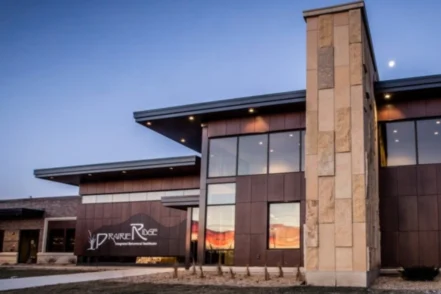 Iowa
IowaPrairie Ridge Integrated Behavioral Healthcare Mason City
320 North Eisenhower Avenue Mason City, Iowa 50402
-
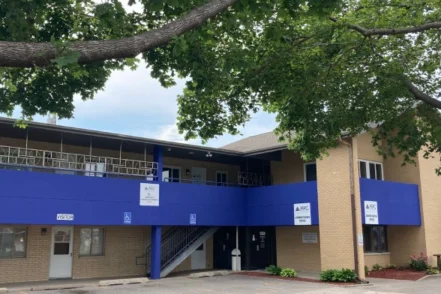 Iowa
IowaASAC Area Substance Abuse Council Main Campus
3601 16Th Avenue Sw Cedar Rapids, Iowa 52404
-
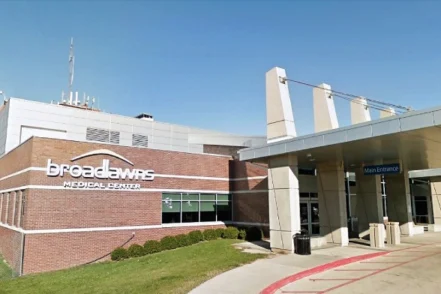 Iowa
IowaBroadlawns Medical Center New Connections
1801 Hickman Road Des Moines, Iowa 50314
-
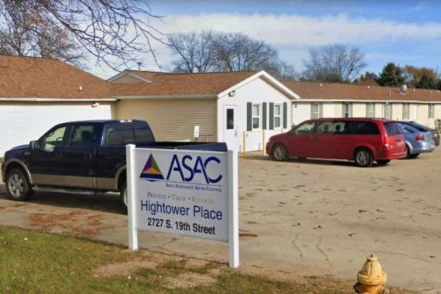 Iowa
IowaASAC Area Substance Abuse Council Hightower Place
2727 South 19Th Street Clinton, Iowa 52732
-
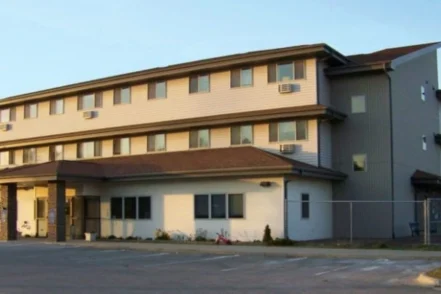 Iowa
IowaPrelude Behavioral Services Synchrony
438 Southgate Avenue Iowa City, Iowa 52240
-
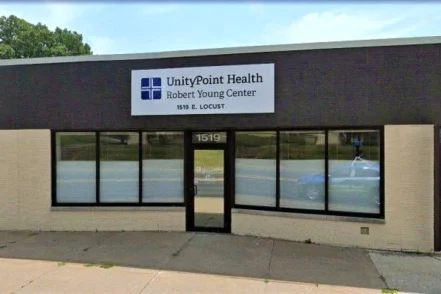 Iowa
IowaCADS Center for Alcohol and Drug Services Locust
1519 East Locust Street Davenport, Iowa 52803
-
 Iowa
IowaAlcohol and Drug Dependency Services ADDS Burlington
1340 Mount Pleasant Street Burlington, Iowa 52601
-
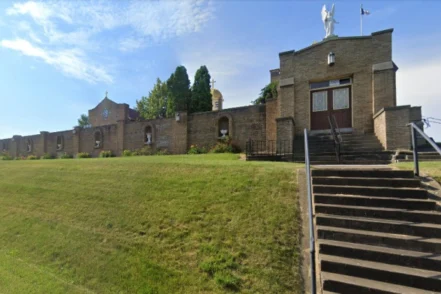 Iowa
IowaThe Abbey Center
1401 Central Avenue Bettendorf, Iowa 52722
-
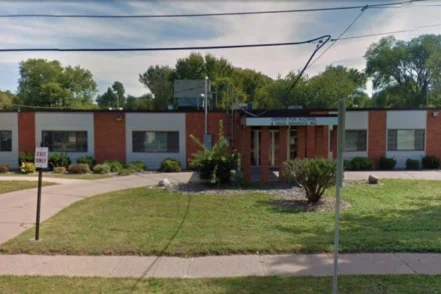 Iowa
IowaCenter for Alcohol and Drug Services CADS Fairmount
1523 South Fairmount Street Davenport, Iowa 52802
